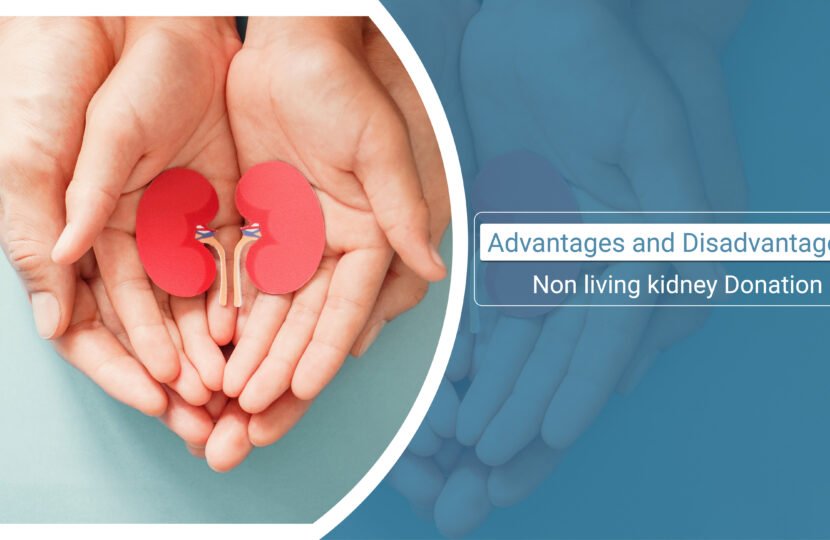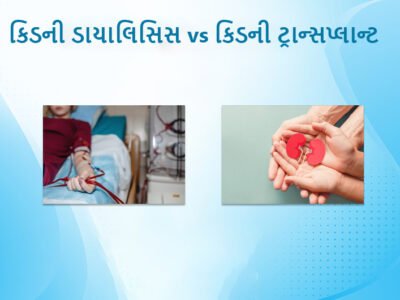Kidney disease can lead for a patient to end up on dialysis which can be difficult and is not a permanent solution. Fortunately, there is the option of a kidney transplant to expand the life span of the patient but for that donated kidneys are needed. Now there are two types of donations: live donor kidney donation and non-living kidney donation. In this blog, we will portray the advantages and disadvantages of non-living kidney donation.
When a kidney from someone who has died recently is given to a recipient with consent from the family of the deceased or with the presence of a donor card, it is known as a non-living kidney donation. Until the kidney is transplanted, it is kept in the most usable condition by storing it in the machinery which provides optimum conditions for it. The time for kidneys to be outside the human body is preferred to be as less as possible. In India, the non-living kidney donation rate is about 0.34 per million. This low percentage is because of several reasons such as a lack of public awareness, religious beliefs, or some laws.
Disadvantages of Non-Living Kidney Donation
- The waiting time for a non-living kidney donation is often more. It can take up to 3 to 5 years to find a non-living kidney donor. Also, the time of waiting varies with certain factors such as your geographical area; time on dialysis, age, etc.
- Planning for transplantation before the recipient needs dialysis is not possible.
- It is often very difficult to get a perfect match for your transplantation if you are opting for a noon living kidney donation. Several times, you must return home after getting tested for a match.
- A kidney from a deceased donor has a 50 percent chance that it won’t function initially which makes post-operative procedures more complicated. With a live donor, the kidney will work properly from the initial stages about 90 percent of the time.
- The risk of ejection is less in live donor transplants.
- Long-term results are better in live donor transplants.
Advantages of Non-Living kidney donation
- There is no pain to the donor
- The cost is less due to no need of blood
- As the donor is deceased, there is no chance of infections being taken care of after the donation.
- With proper consent, the family of the donor does not suffer from any kind of anxiety or depression.
- There are certainly low chances of functionality than live donor transplants, but the kidney is only given to the recipient if it is healthy and likely to work in the body.
For more information contact Kidney Specialist Dr. Ravi Bhadania (Nephrologist) at Alfa Kidney Care.


